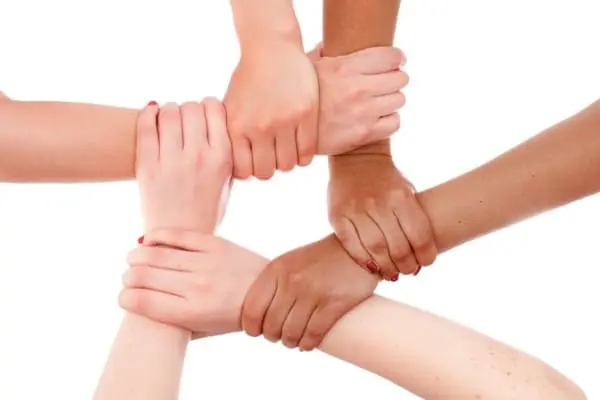Social support can have a positive effect on your mood and body, especially when you are dealing with stressful tasks or situations. According to research, social support can lower your blood pressure and boost your immune system while performing stressful tasks. According to a new study, being willing to provide social support to your spouse, friends, and family may be just as important as receiving assistance when it comes to your health.
While researchers have long believed that receiving social support from others is important for health, study results have been mixed. As a result, researchers from The Ohio State University decided to investigate whether providing assistance may also play an important role in health.
They discovered that indicators of positive social relationships were associated with lower inflammation only among people who said they were available to provide social support to family and friends on one important measure of health — chronic inflammation.
Positive relationships may be associated with lower inflammation only for those who believe they can provide more support in those relationships. The study’s preliminary findings suggested that the link between health and willingness to help others may be especially important for women.
Tao Jiang
In other words, having friends to lean on may not benefit your health unless you also express your willingness to assist them when they need it. Social support appears to have an immediate impact on immune system function. Social support can have an indirect impact on health by influencing health-related behaviors such as exercise and proper nutrition.
“Positive relationships may be associated with lower inflammation only for those who believe they can provide more support in those relationships,” said Tao Jiang, the study’s lead author and an Ohio State doctoral student in psychology. The study’s preliminary findings suggested that the link between health and willingness to help others may be especially important for women.
Jiang collaborated on the study with Jennifer Crocker, professor of psychology, Baldwin Way, associate professor of psychology, and Syamil Yakin, research assistant, all of whom work at Ohio State. Their findings were published this month in the journal Brain, Behavior, and Immunity.
According to Way, the findings show that the healing power of good relationships stems from the fact that support is mutual. “It’s possible that when people believe they can provide more support to friends and family, these relationships are especially rewarding and stress-relieving, which reduces inflammation,” he explained.

The study drew on data from 1,054 people who took part in the National Survey of Midlife Development in the United States. These were all healthy adults ranging in age from 34 to 84 years old. Participants filled out a questionnaire about their “social integration,” which included questions about whether they were married or living with a partner, how frequently they contacted family and friends, and how frequently they attended social groups or activities.
Participants were also asked to rate how much they believed they could rely on their family, friends, or spouse for assistance if they needed it. The key to this study is that the dataset is one of the few that also asked participants to rate how much money they had available to support family, friends, and spouses, according to Jiang. After about two years, these participants returned for blood tests, which included an interleukin-6 (IL-6) test, which is a marker of systemic inflammation in the body.
“Higher levels of IL-6 are associated with an increased risk for many of the leading causes of death in the United States, including cardiovascular disease and cancer,” Way explained. “That’s why we thought it was critical to figure out why previous studies found such flimsy evidence for a link between social support and lower inflammation.”
The findings demonstrating the importance of being available to help others remained true even after accounting for a wide range of other factors that may influence inflammation, such as age, income, and education, as well as health behaviors, medication use, and diagnosed medical conditions.
According to Jiang, the exploratory analysis revealed that the link between providing social support and health may be more prevalent in women. “This reflects the idea that social relationships are frequently regarded as more important for women than for men,” Jiang explained. “However, our sample size was insufficient to demonstrate this conclusively. We need to look into this further.”
It is important to note, according to Way, that this study only looked at what people said they were willing to do, not their actions. However, the study provides “a more nuanced understanding” of the link between health and relationships, according to Jiang. “This work emphasizes the importance of incorporating the concept of providing assistance into future research in this area,” he said.
















